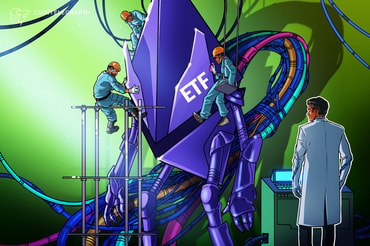Bitcoin Price Up 40% YTD, but Gold Wins on Risk-Adjusted Returns

Election 2024 coverage presented by
Bitcoin (BTC) has surged over 40% this year, outshining major equity indices, fixed-income securities, gold and even oil, which recently rose on the back of geopolitical tensions.
However, according to data tracked by Goldman Sachs, its stellar performance in absolute terms is not sufficient to compensate for its volatility.
Bitcoin’s year-to-date return to volatility ratio is under 2%, significantly lower than gold’s industry-leading risk-adjusted return of around 3%. The ratio gauges the return an investment generates per unit of risk/volatility. The yellow metal has gained 28% in absolute terms.
In fact, Ethereum’s native token ether, Japan’s TOPIX index, and the S&P GSCI Energy Index are the only non-fixed income growth-sensitive investments with return to volatility ratios lower than bitcoin, the chart from Goldman’s Oct. 7 note titled “Oil on the boil” shows.
That relatively low risk-adjusted performance validates crypto skeptics’ long-held view that bitcoin is too volatile to become a safe haven like gold.
It also helps explain why gold rose and bitcoin tumbled alongside equity markets last week after Iran launched missiles at Israel, ratcheting up tensions in the Middle East.
The low risk-adjusted returns make directional bets unattractive and likely explain the popularity of the bitcoin cash and carry arbitrage among traditional institutions. The arbitrage strategy allows traders to bypass price volatility risks while profiting from price discrepancies between spot and futures markets.
12:25 UTC: Corrects BTC and gold’s YTD return to volatility ratios to less than 2% and around 3%, respectively.
Edited by Stephen Alpher.
Disclosure
Please note that our privacy policy, terms of use, cookies, and do not sell my personal information have been updated.CoinDesk is an award-winning media outlet that covers the cryptocurrency industry. Its journalists abide by a strict set of editorial policies. CoinDesk has adopted a set of principles aimed at ensuring the integrity, editorial independence and freedom from bias of its publications. CoinDesk is part of the Bullish group, which owns and invests in digital asset businesses and digital assets. CoinDesk employees, including journalists, may receive Bullish group equity-based compensation. Bullish was incubated by technology investor Block.one.
Omkar Godbole is a Co-Managing Editor on CoinDesk’s Markets team.

Published on Other News Site












